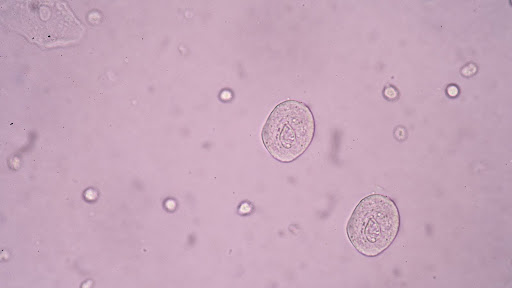Understanding Down Syndrome: Signs, Symptoms, and Available Treatments
5 min read
By DocGenie , Published on - 29 November 2024This article offers a comprehensive overview to help you recognize Down syndrome early, understand its causes, and explore available remedies and treatment options—with insights on how platforms like DocGenie can support your journey.

What Is Down Syndrome?
Down syndrome is a genetic disorder that occurs when a person is born with an extra copy of chromosome 21. This additional genetic material affects the individual’s physical development, intellectual ability, and sometimes internal organ function.Types of Down Syndrome
There are three main types:- Trisomy 21 – The most common type (95% of cases), where every cell has an extra chromosome 21.
- Translocation Down syndrome – About 3-4% of cases; part of chromosome 21 is attached to another chromosome.
- Mosaic Down syndrome – Rare form (1-2%); only some cells have the extra chromosome.
Signs of Down Syndrome During Pregnancy
Doctors can detect the possibility of Down syndrome during pregnancy through screening and diagnostic tests.Common Prenatal Signs:
- Increased nuchal translucency (fluid at the back of the baby’s neck)
- Abnormal levels of certain proteins and hormones in maternal blood
- Physical markers on ultrasound, like shorter femur length or absent nasal bone
Tip: You can consult experienced gynecologists and pediatricians on DocGenie for prenatal screenings, second opinions, and planning the next steps with expert guidance—all from the comfort of your home.
Symptoms of Down Syndrome After Birth
Physical Features:
- A flat facial profile
- Small head and ears
- Upward slanting eyes
- Short neck
- Small hands with a single deep crease across the palm
- Poor muscle tone (hypotonia)
Developmental Symptoms:
- Delays in speech and language
- Slow motor development
- Mild to moderate intellectual disability
- Short attention span
- Learning difficulties
Medical Conditions Associated with Down Syndrome
Many individuals with Down syndrome also experience other health issues, including:- Congenital heart defects
- Vision and hearing problems
- Thyroid disorders
- Respiratory infections
- Sleep apnea
- Gastrointestinal issues
- Increased risk of childhood leukemia
- Alzheimer’s disease later in life
Down Syndrome Remedies and Treatments
While Down syndrome cannot be cured, timely treatment and therapy can greatly enhance the quality of life.- Medical Support
- Heart surgery (if needed)
- Hearing aids or glasses
- Thyroid medication
- Vaccinations and preventive care
- Therapies
- Speech therapy
- Occupational therapy
- Physical therapy
- Behavioral therapy
- Early Intervention From birth to age 3, early intervention programs improve cognitive, motor, and social skills. Platforms like DocGenie offer online consultations with child development experts and psychologists who can guide you on customized therapy plans.
How Can Parents Help?
- Start Early Book early evaluations with pediatric specialists via DocGenie to start intervention as soon as possible.
- Stay Informed DocGenie’s blog section and expert doctors share advice on developmental milestones, therapies, and parenting tips.
- Create a Stimulating Environment Play, talk, and read with your child daily. Therapists on DocGenie can suggest at-home stimulation exercises.
- Encourage Independence Teach simple tasks gradually and praise small achievements.
- Build a Routine Consistency helps your child feel secure and learn better.
Schooling and Social Inclusion
Many children with Down syndrome attend regular schools with support. Teachers may use IEPs (Individualized Education Programs) to track progress. Some children benefit from special schools or inclusive programs.DocGenie's pediatricians and child psychologists guide you in choosing the right schooling path and help with emotional readiness for parents and children.
Life Expectancy and Quality of Life
With medical advances, life expectancy for individuals with Down syndrome has increased significantly. Today, many live beyond 60 years.Adults Can:
- Hold jobs
- Live semi-independently
- Enjoy fulfilling relationships
- Participate in social life
Emotional Support for Families
Receiving a Down syndrome diagnosis can be emotionally intense. But remember, you're not alone.DocGenie offers access to:
- Counseling services for parents and siblings
- Mental health experts for coping strategies
- Community support through blogs and awareness webinars
Myth vs Fact: Clearing Misconceptions
| Myth | Fact |
|---|---|
| Down syndrome is rare | It is the most common chromosomal condition |
| Only older mothers give birth to children with Down syndrome | 80% of babies are born to women under 35 |
| People with Down syndrome can't live independently | Many live semi-independently with support |
| They don’t live long lives | Life expectancy now exceeds 60 years |
| People with Down syndrome are always happy | They feel a full range of emotions |
When to See a Doctor
If you notice signs of developmental delays or have concerns about your child’s growth, consult a pediatrician. On DocGenie, you can:- Book video consultations with experienced pediatricians
- Choose your doctor before booking
- Get reports reviewed online
- Access mental health experts for ongoing emotional support
Why Choose DocGenie?
- Only experienced and highly qualified doctors
- Choose your doctor before you pay
- No need to download an app
- Easy booking via website
- Focused on quality care—no compromise
Final Thoughts
Down syndrome is not a limitation—it’s a different path that can be filled with love, strength, and remarkable milestones. With early support, medical guidance, and emotional care, your child can thrive.Platforms like DocGenie make it easier for you to access quality healthcare, so your journey feels supported every step of the way.
Author Details

Dr.Rachna Kucheria
MD (Community Medicine) AIIMS New Delhi
MD (Family Medicine) USC California
Obesity Medicine Certification The American Board of Obesity Medicine
30+ Years of experience


